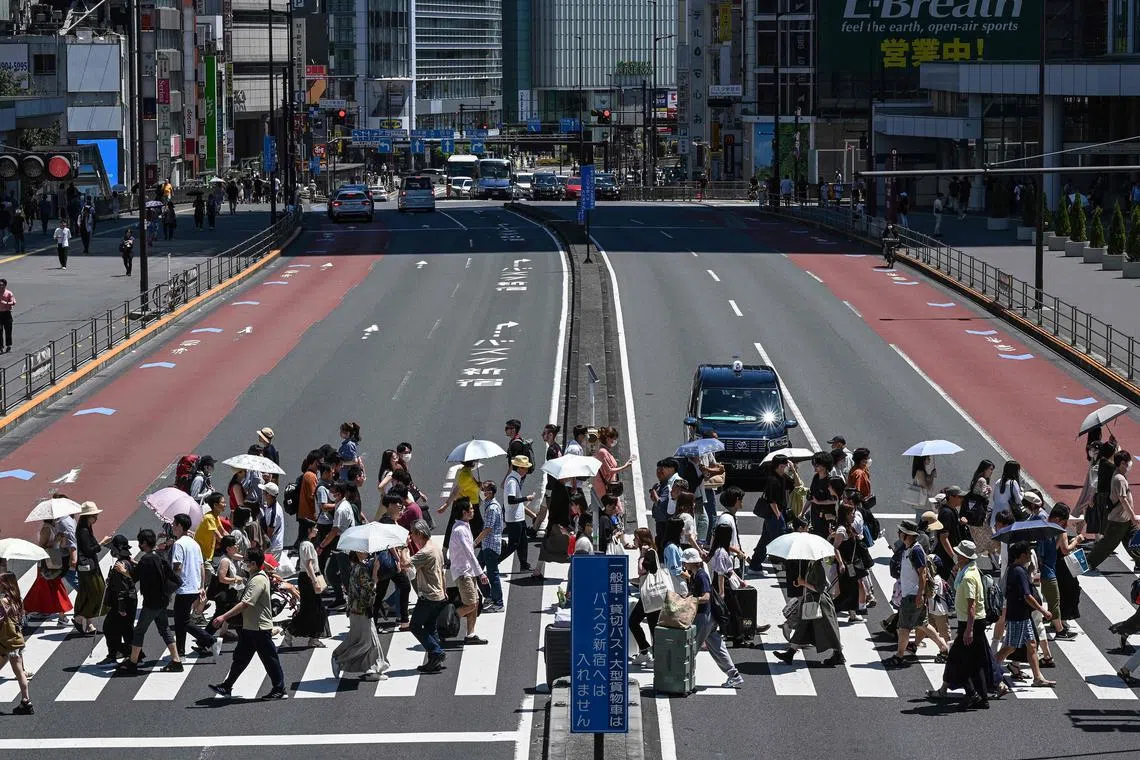Japanese firms cut down on remote work despite workers’ strong demand: Survey
Sign up now: Get insights on Asia's fast-moving developments

In the survey, 81.9 per cent of Japanese employees who engage in telework say they want to continue working remotely.
PHOTO: AFP
Follow topic:
Despite Japanese workers’ strong demand for working remotely, Japanese companies have continued to cut down on telework arrangements since the government downgraded Covid-19 to a lower-risk disease category in May.
Kyodo News reported on Saturday that the ratio of workers adopting flexible telework arrangements has dropped to 22.2 per cent, according to a survey released earlier last week by private think-tank Persol Research and Consulting.
This is the lowest level since the Covid-19 outbreak in Japan, down from 27.9 per cent in April 2022, when the country’s first Covid-19 state of emergency was declared. It peaked at 28.5 per cent in February 2022.
The think-tank collected responses in mid-July 2023 from 24,644 workers at companies with 10 or more employees, said Kyodo.
However, 81.9 per cent of those who engage in telework said they want to continue working remotely, without specifying the reasons why.
Japanese companies have been reluctant to promote telework, unlike in major economies.
Labour market experts quoted by Kyodo said this is because of concerns about the lack of face-to-face communication, the rigid and hierarchical work culture and the slower digital transition in society.
The trend of having workers move away from working remotely is more apparent among companies that saw telework as a temporary measure to prevent a Covid-19 infection at the workplace, rather than a work-style reform, said Mr Yuji Kobayashi, a researcher at Persol Research and Consulting.
“Considering workers’ demand for telework, what is needed now is offering a flexible work style, not returning completely to in-office work,” he said.

